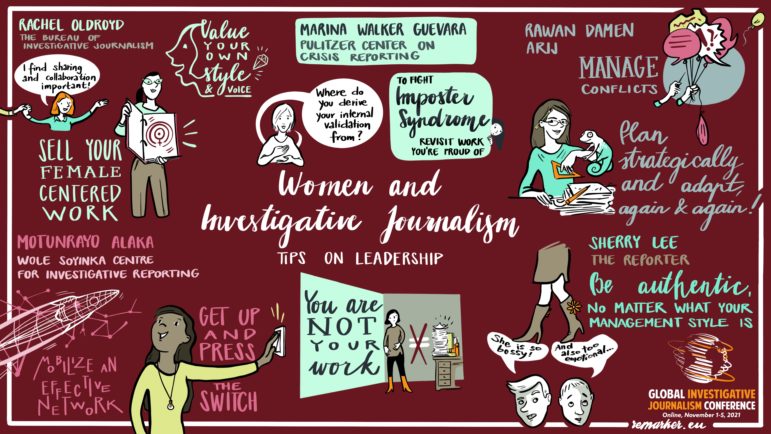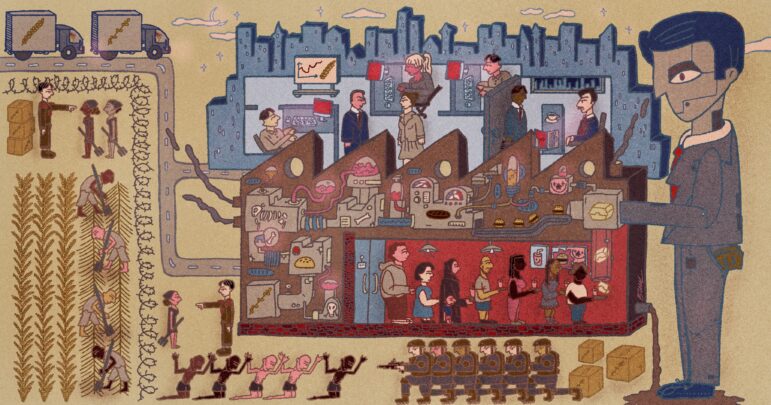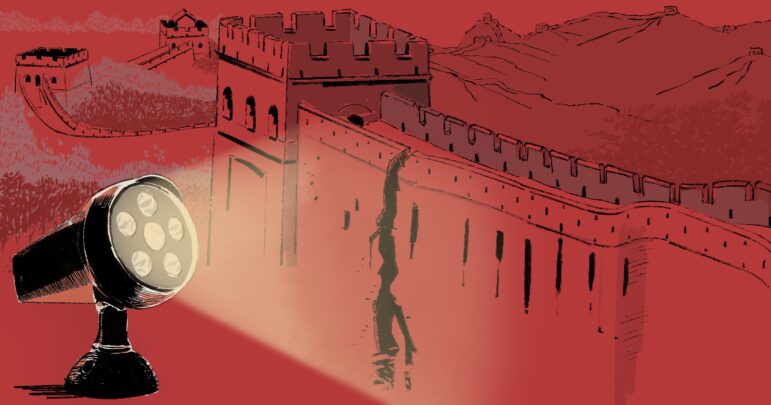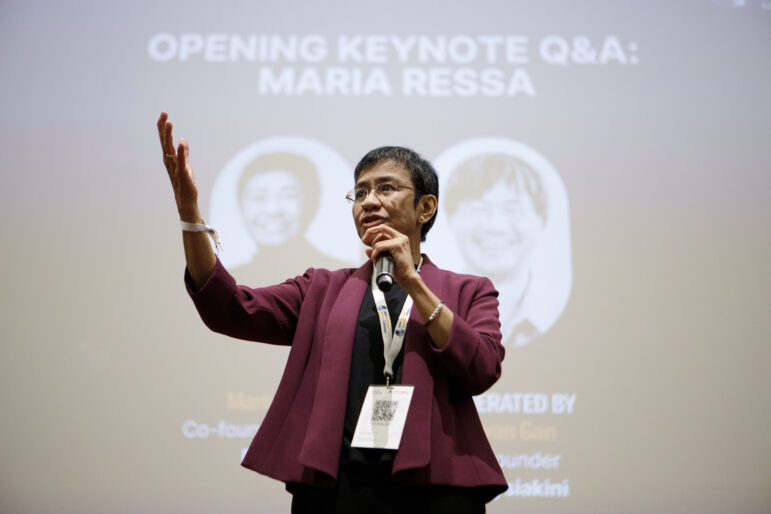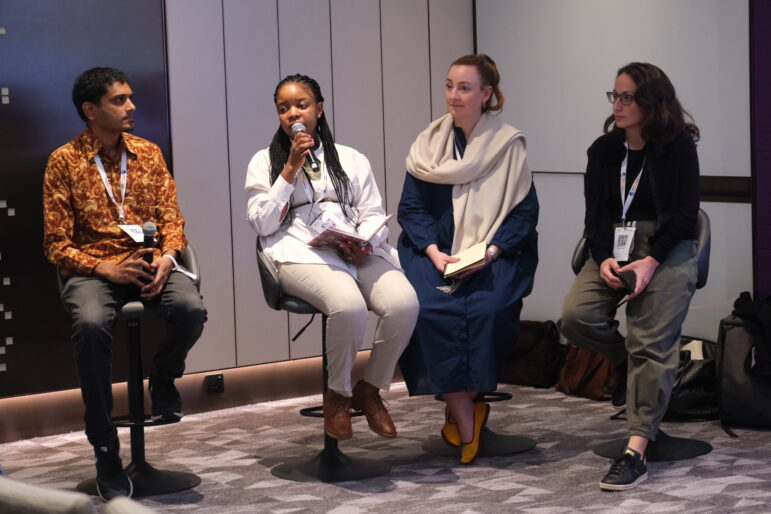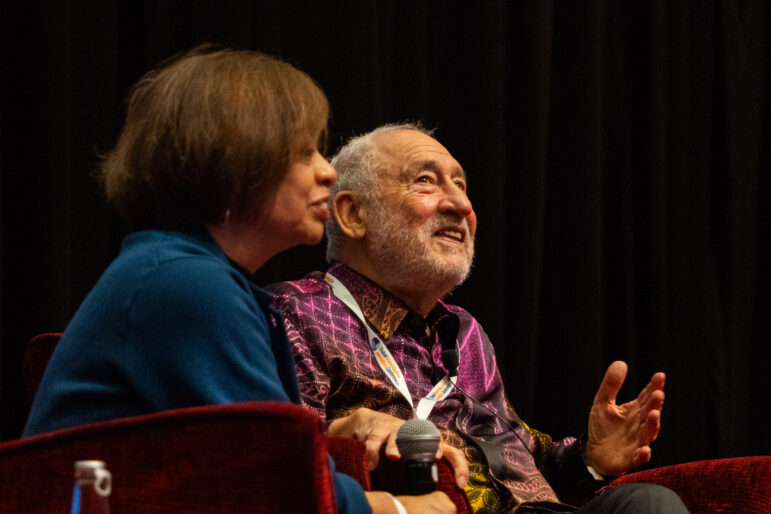

Image: Shutterstock
Early in her career, business and investigative reporter Selina Cheng gained rare access to women who alleged that they had been abused by Bey Logan, an associate and former top executive of Harvey Weinstein — the Hollywood producer sentenced to prison and on trial for multiple counts of sexual assault.
Survivors trusted Cheng with intimate details, which supported a strong investigation, but there was a personal cost — the ire of Logan, the Weinstein associate at the center of the story.
In 2019, two years after the investigation, Cheng says Logan called her, tearing into her, calling her names, and swearing.
“He’ll just send me stuff when he feels hateful. I don’t know if he’s drunk or something,” said Cheng, speaking as part of a panel about the particular risks and dangers female journalists face at the 14th Global Investigative Journalism Conference (GIJC25) in Malaysia.
This kind of harassment and aggression is especially common for female investigative reporters. A study by the International Women’s Media Foundation (IWMF) suggests online and offline risks against journalists are increasing and are disproportionately impacting reporters who identify as women, as a person of color, or LGBTQIA+.
The rates of incidence are staggering — and the impact far-reaching. An estimated 70% of women journalists have received some form of harassment, threat, or attack. Around a third have thought about leaving the profession because of these attacks and threats.
Myriad Risks
Threats such as harassment and intimidation sit alongside less discussed risks, such as negotiating equal and fair pay, or maybe having to assert yourself in a newsroom of predominantly older, male colleagues. These challenges rarely occur in isolation. They stack up, intersect, and often transcend borders and beats.
On the GIJC25 panel, Cheng was joined by fellow journalists Dragana Pećo, investigative journalist and researcher at the Organized Crime and Corruption Reporting Project (OCCRP); Hayatte Abdou, co-founder of National Magazine Comores; Mais Katt, founder and editor of Women Who Won the War; and Taís Seibt, chief of strategy at Fiquem Sabendo. Sarah Ulrich, an independent investigative journalist and GIJN’s German editor, moderated the session.
The experiences of the women on the panel revealed not only how common certain challenges are, but also the creative coping strategies they have developed to help them stay safe and keep reporting.
Speak Up and Get Support
Serbian investigative journalist Pećo described the terror of finding her apartment turned upside-down a few years ago. Nothing was stolen — the violation was just a psychological tactic to remind her that her private world could be breached.
As part of the team that set up KRIK, an independent digital newsroom focusing on corruption and organized crime, Pećo was involved in high-profile investigations that included the Panama Papers and the Pandora Papers.
It wasn’t the first attempt at intimidation. Pećo and her team had already endured smear campaigns, surveillance where “they literally knew what we were talking about in the office,” and messages stating that she and her colleagues should be “lined up and shot.”
Instead of retreating, Pećo strategically made her case public — detailing not only the break-in but the pattern of harassment against her newsroom.
“I wanted them to know that if this is the way [they think they can] stop me from doing my story, that’s not how things work. If you’re going to play this game, I’m going to set the rules,” she said, adding that it was the help and support of her colleagues that emboldened her and stopped her from feeling alone.
Speaking out delivered two forms of protection: international attention from other media rights groups and an outpouring of financial support from donors who recognized the attacks as efforts to silence watchdog reporting.
Push for Fair Pay with Data
Globally, women still earn nearly 20% less than men on average. According to the International Federation of Journalists, the gender pay gap in journalism persists across continents, newsroom sizes, and reporting beats.
When a salary increase at the end of a probationary period did not materialize, Cheng was assured by her boss that she was not being paid less than any of her colleagues. Instead of arguing about it, Cheng did her own performance review. She listed her most important stories, added internal data on page views for each, and pasted links to other publications that had picked up or mentioned her stories. In the end, she got the raise.
Build Community to Build Visibility
A 2025 Reuters Institute study revealed how gender disparities persist in newsroom leadership. The study analyzed 240 major online and offline news outlets across 12 countries. Across these outlets, women make up just 27% of top editors, even though women constitute roughly 40% of journalists in the same countries. Strikingly, in every single market studied, including those where women outnumber men in the profession, men still dominate senior editorial positions. The data reveals a stubborn leadership gap that continues to shape newsroom culture, priorities, and opportunities.
Taís Seibt, chief of strategy at Fiquem Sabendo, works actively to shift the pipeline from the ground up. She intentionally invites women speakers into her university journalism classes, believing that seeing women leading investigations helps students imagine themselves in those roles.
“I believe in the community, in the power of visibility,” she said. “It is a small contribution, but it is important.”
Across a decade of teaching aspiring reporters, she has watched representation reshape confidence and ambition. Beyond the classroom, she has created fellowships specifically for young women, offering training in reporting, design, and secure research methods. Of eight fellows in 2024, half have been shortlisted for major investigative awards in Brazil, she said.
Reframe Rest as Normal
Cheng, who also heads a journalists’ union in Hong Kong, described the grind of reporting in repressive environments with threats that can last for months, years — even decades. To reset physically and mentally, she organizes hikes, beach days, and informal clubs that include cooking nights and book circles.
The joy of relaxing and distancing from the relentless news cycle builds stamina, she explained: “People need to have fun (…) they can continue for so much longer.” Joy isn’t a luxury but essential to protect against burnout-induced exits from the profession, she added.
Build Global Feminist Networks
Authoritarian crackdowns don’t stop at borders, and neither should journalist support systems. The speakers, as well as members of the audience, called for networks that connect women across countries so that threats to press freedom that disproportionately affect women, such as the Taliban’s erasure of women in Afghanistan, receive collective global pressure, not isolated outrage.
GIJN’s Women Investigative Network and groups, including Women Who Won the War, train, mentor, and advocate for women across the MENA region. The panelists and the audience called for an expansion of these models through more mailing lists, gatherings, resource-sharing, and even informal coffee chats at conferences. When women journalists unite, authoritarian systems lose one of their strongest strategies — making us believe we are alone.
More Tips and Coping Strategies
Other tips shared during the session included:
- If you are in a position of power and influence, use it to make space and create space for other female and marginalized journalists. Offer the resources you have and invest in ourselves and in each other.
- Identify and appreciate male allyship.
- For male colleagues: several panelists described how supportive male colleagues quietly helped them advance in their careers by opening doors to opportunity, mentoring, or by asking simple but crucial questions like: “What do you need?” and “How can I support you?”
- Invest in yourself through training and capacity building. Knowing your worth is the essence of asserting your worth.
Hayatte Abdou, co-founder of National Magazine Comores, said a male Australian colleague regularly checks on her well-being and connects her to global investigative teams: “If I am the investigative journalist I am today, it’s because of him.” Real allyship amplifies women without overshadowing them.
GIJN has compiled this comprehensive guide for women, female-identifying, and non-binary journalists to help them navigate harassment, discrimination, and countering isolation. These resources include guides for connecting with peers, seeking support, and asserting their rights.

